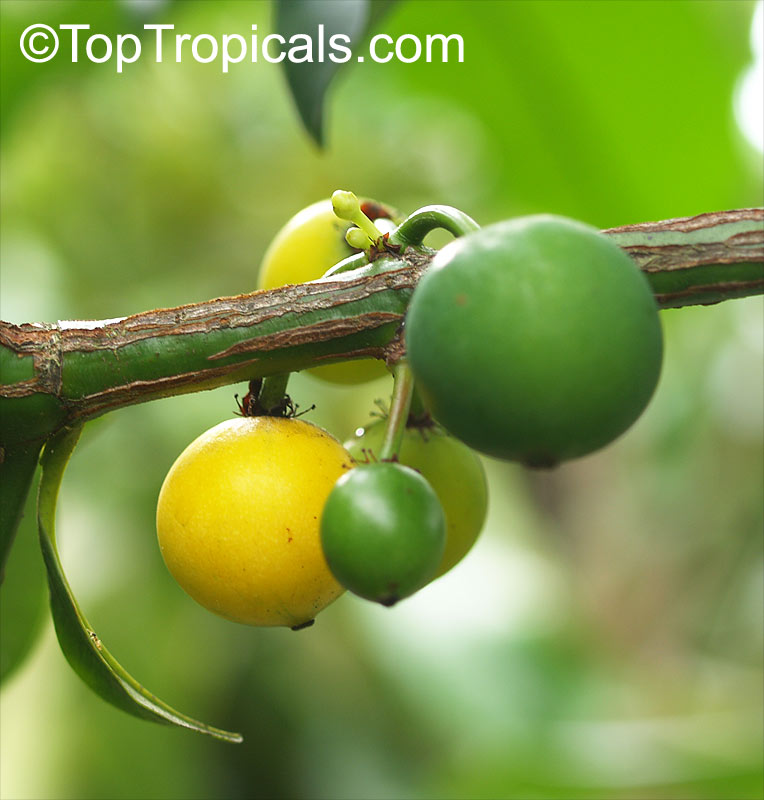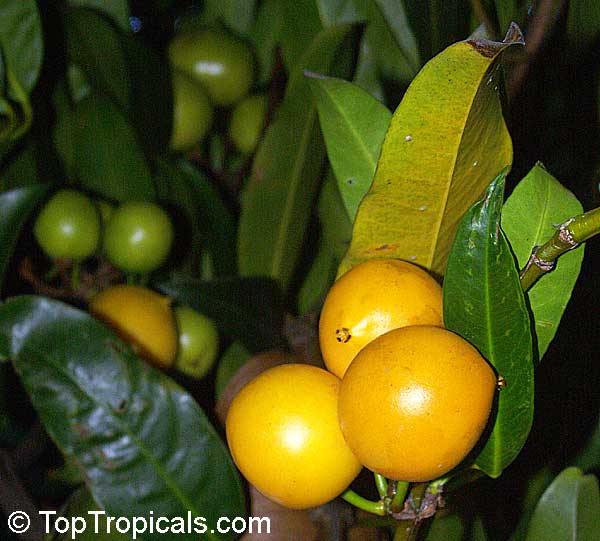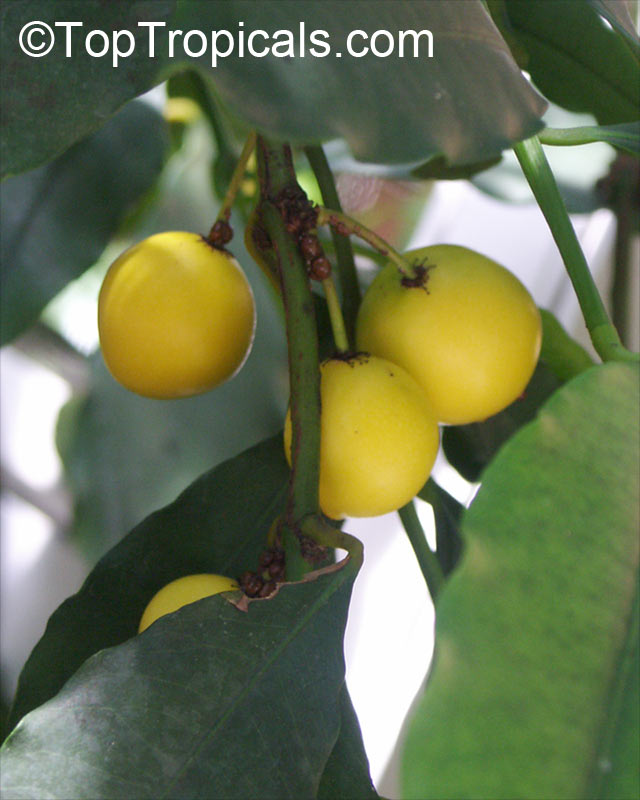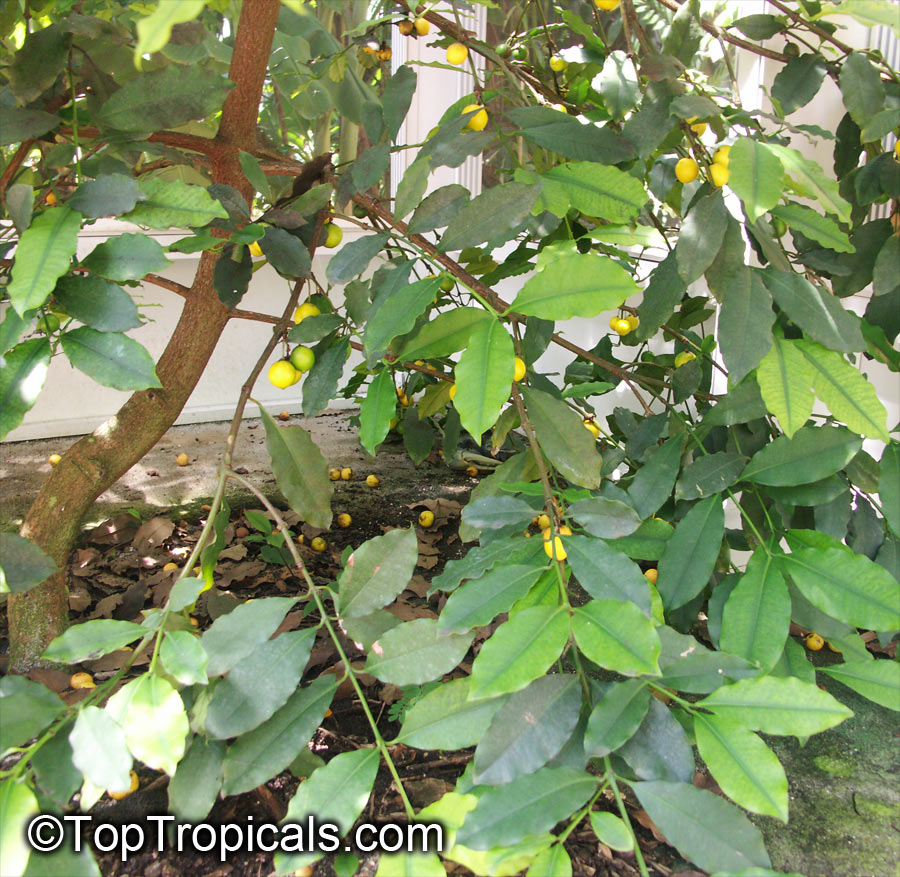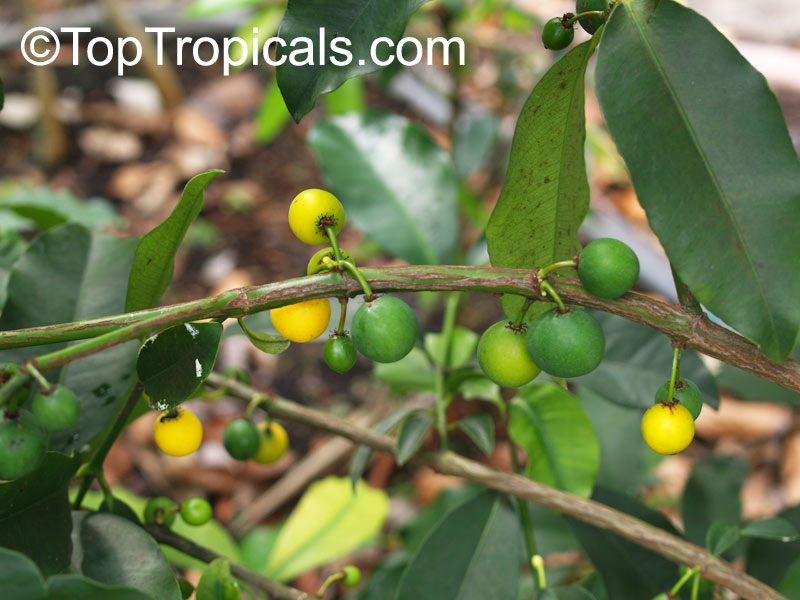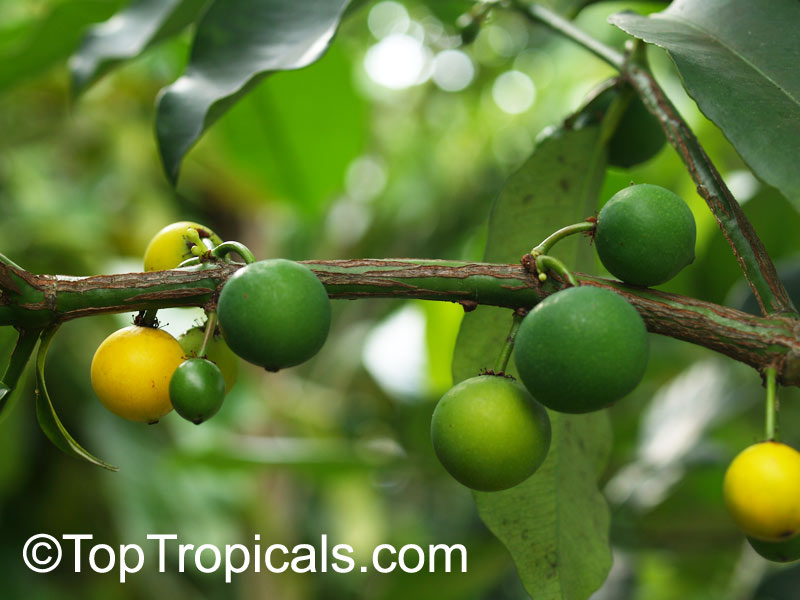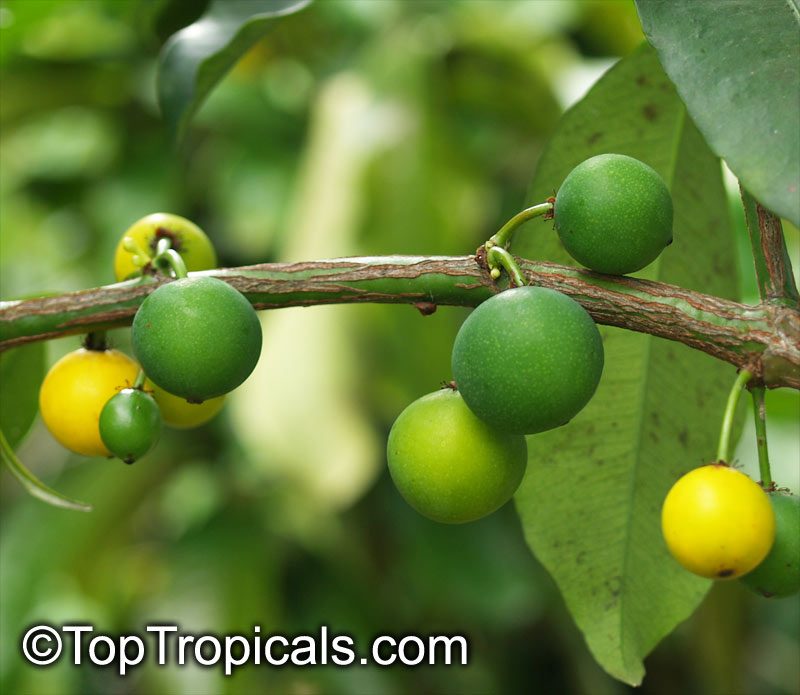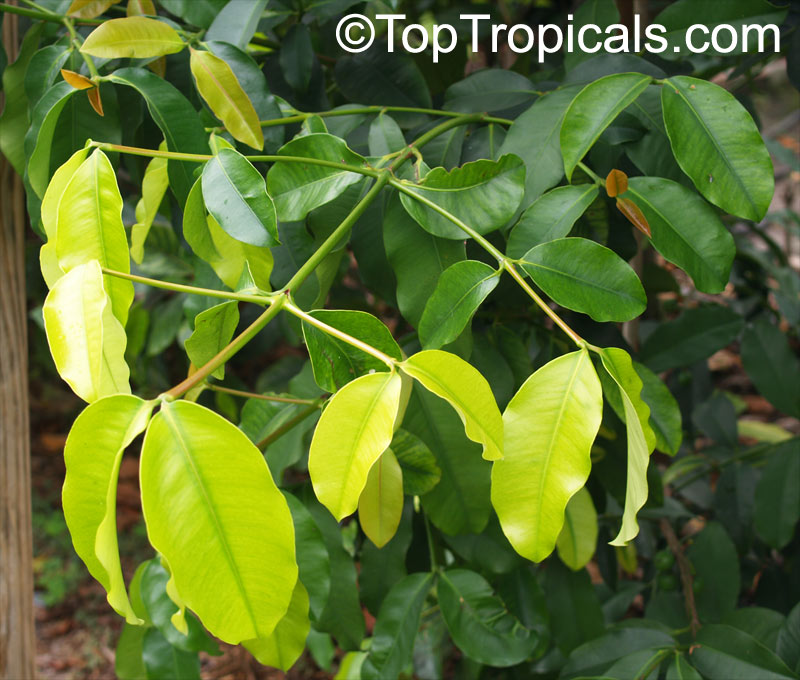Rheedia brasiliensis (Bakupari)
Botanical names: Rheedia brasiliensis, Rheedia laterifolia, Garcinia laterifolia
Common names: Bakupari, Camboriu
Family: Clusiaceae / Guttiferae
Origin: Brazil






Rheedia brasiliensis (Bakupari) is a small tree which grows 10-20 ft in height and is a native to Brazil. It is a semi-shade loving plant and needs regular watering in order to thrive. This ethnomedical plant has an edible fruit that is a rich source of many healthy benefits. The fruits have a subacid white pulp with an excellent flavor and can reach up to 1-1/2 inches in length. The orange-yellow, pliable, and leathery skin is easy to remove. Inside two rounded seeds are enclosed amongst the aril-like, translucent pulp. The tree blooms in December and matures in January and February, producing an abundance of fruits.
In addition to its delicious flavor, the fruit of Rheedia brasiliensis is used to make sweetmeats or jam. The seeds also contain 10 percent oil by weight, which is used in Brazil in poultices to treat wounds, whitlows, tumors, and an enlarged liver. An infusion from the fruit pulp has a narcotic action that mimics nicotine effects.
Grown in USDA Zone 9-11, Rheedia brasiliensis (Bakupari) is easy to care for. It prefers full sun exposure, but can also tolerate semi-shade. This small tree needs regular watering and well-draining, slightly acidic soil. In colder regions where it may not be possible to plant outside, the tree can be grown in a pot with similar care requirements.
Similar plants: Rheedia brasiliensis (Bakupari)
- Garcinia megaphylla (Bacuru Pary)
- Garcinia portoricensis (Reedia)
- Rheedia edulis (Monkey Fruit)
- Rheedia aristata (Cuban Mangosteen)
- Rheedia longifolia (Charichuela)
- Rheedia madruno (Madrono)
- Garcinia atroviridis (Asam Gelugor)
- Garcinia gummi-gutta (Brindleberry)
- Garcinia hombroniana (Seashore Mangosteen)
- Garcinia livingstonei (Imbe)
